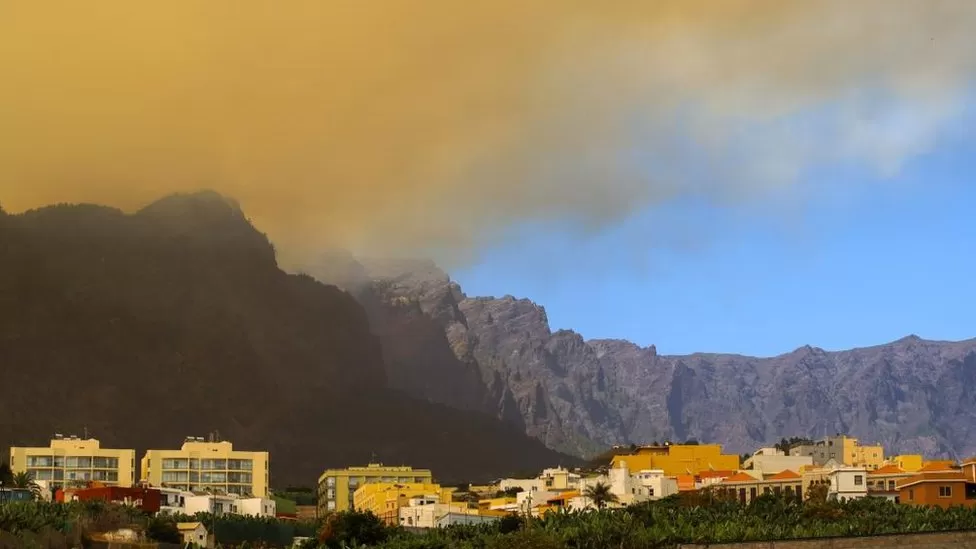La Palma, one of the beautiful Canary Islands, is facing a severe crisis as a massive wildfire engulfs the region. The blaze, which ignited early on Saturday, has rapidly spread, devouring approximately 4,500 hectares (11,100 acres) of land and destroying at least a dozen homes. In response to the escalating situation, thousands of residents have been urged to evacuate their homes while emergency workers strive to bring the fire under control.
The Immediate Evacuation Efforts
The authorities have taken immediate action, deploying around 400 troops from various agencies to combat the raging wildfire. Despite the evacuation orders, some residents have been reluctant to leave their homes, causing concern among officials. Fernando Clavijo, the president of the Canary Islands regional government, emphasized the importance of prioritizing human lives over property, stating, “People come first, then the houses, and then [extinguishing the fire].”
Origin and Spread of the Blaze
The wildfire originated in the area of El Pinar in the north-western municipality of Puntagorda before rapidly advancing southward towards the town of Tijarafe. The favorable conditions for the fire’s rapid spread were attributed to strong winds, adverse climate conditions, and an ongoing heatwave in the region. Despite some progress in slowing down the blaze, it remains out of control, posing a significant threat to La Palma.
Collaborative Firefighting Efforts
To combat the wildfire, a seaplane has been deployed, providing assistance in battling the flames. Additional resources are being mobilized, with reports indicating that another seaplane will join the operation on Sunday. The Spanish army has also contributed to the firefighting efforts, dispatching 150 firefighters, and further reinforcements are expected. The Red Cross has established a facility to provide aid and support to the evacuees affected by the wildfire.
Read More:
Upgrading Lahore Zoo and Safari Park: Transforming into an International Standard Facility
Solidarity and Support
The severity of the situation has garnered attention and support from both national and international entities. Spanish president Pedro Sánchez expressed his solidarity with the affected people, assuring them that all necessary resources would be made available to La Palma’s authorities. The collective efforts of the regional and national government, along with the assistance from various organizations, aim to mitigate the impact of the ongoing wildfire.
Reluctance and Discontent
Despite the urgent need for evacuation, some residents have expressed their reluctance to leave their homes. Leon Barreto, a local resident, voiced his concerns, stating that the authorities’ approach to evacuation felt forceful and disregarded the emotional attachment and hard work invested in their homes. This sentiment highlights the challenging decisions faced by residents during crises and the delicate balance between personal belongings and personal safety.
Heatwave and Climate Change
The wildfire in La Palma is not an isolated incident but rather occurs amidst a broader context of heatwaves and climate change. Southern Europe has been enduring a scorching heatwave, resulting in soaring temperatures across the region. Such extreme weather events are becoming increasingly frequent, intense, and prolonged due to global warming. The combination of high temperatures and dry conditions creates a conducive environment for wildfires to spread rapidly, amplifying the challenges faced by affected communities.




